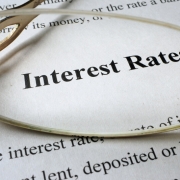Is A Sale-Leaseback Strategy A Viable Alternative For Your Business?
By Ron Osborne, Managing Director, Sperry Commercial Global Affiliates | RJ Realty
As a financing method, a sale-leaseback holds more advantages for businesses compared to leveraging their balance sheets. With today’s escalated interest rates, a scenario has emerged where the sale-leaseback option outweighs borrowing avenues for companies. If a business’s borrowing rate for a leaseback (or cap rate) is significantly lower than its corporate borrowing rate, redirecting equity tied up in a building becomes a viable alternative, particularly for business expansion.
Often, businesses encounter opportunities to broaden their reach or enhance their current facilities. Capitalizing on these prospects sometimes demands more funds than readily available. In such cases, selling the property, unlocking the tied-up equity, and reinvesting it into business expansion or improvements becomes a more cost-effective solution than traditional borrowing options.
Consider this: if the borrowing rate stands at 9% to 10%, but the business can sell and lease back the property at 6% to 7%, there exists a substantial 200 to 300 basis point spread. Undoubtedly, this presents a far more advantageous financing route than leveraging the balance sheet.
This strategy empowers the company to retain control over the asset by becoming a tenant for a specified duration—a 5-year, 10-year, 15-year term, or as outlined in the agreement. Sometime the buyer will give the ownership the First Right of Refusal or Option to buy back the property at some future time and price.
Sale-leasebacks have served companies, regardless of their size, for numerous years, facilitating business expansion, debt reduction, or other alternative uses made possible by the equity in their properties. They’re an excellent method for companies to unlock dormant equity and channel it toward paying off debts, acting as a debt substitute, or funding crucial business-related upgrades.
Given the recent substantial rise in interest rates over the past couple of years, businesses eyeing property purchases or refinancing endeavors to expand could view a sale-leaseback as a viable alternative to an SBA loan.










